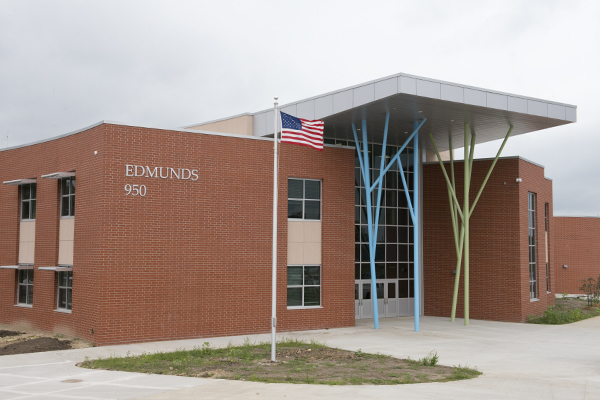Check Out the Obstacles Facing Our Neighborhood: Save Temecula Schools
Check Out the Obstacles Facing Our Neighborhood: Save Temecula Schools
Blog Article
Just How Schools Play a Critical Role in Shaping Future Leaders and Innovators
By integrating project-based discovering and interdisciplinary studies, academic establishments test trainees to examine and synthesize intricate information. Educators serve as coaches, leading pupils and supporting their capacity, while extracurricular tasks additionally create management skills and durability.
Fostering Critical Assuming
In today's swiftly evolving world, cultivating vital believing within instructional organizations has actually ended up being critical. As culture grapples with increasingly intricate international obstacles, the capability to assess, examine, and synthesize details is necessary. Institutions play a crucial function in establishing these abilities, preparing trainees to navigate and address multifaceted troubles with informed, reasoned decisions.
To cultivate critical reasoning, teachers employ different pedagogical techniques that urge active learning and intellectual involvement. Classroom conversations, problem-based discovering, and Socratic questioning contribute in advertising logical and reflective idea procedures. By challenging students to question presumptions and think about multiple viewpoints, these approaches guarantee a deeper understanding of subject past memorizing memorization.
In addition, incorporating essential assuming throughout the educational program reinforces its importance and applicability in varied contexts. Topics such as maths, scientific research, history, and literature each offer distinct possibilities to establish trainees' important faculties. For example, evaluating historical occasions needs recognizing and examining resources context, while scientific questions needs strenuous hypothesis testing and evidence-based thinking.
Eventually, instilling vital assuming abilities in trainees equips them with the cognitive tools necessary for lifelong knowing and flexibility. It is via this foundational proficiency that future leaders will be able to introduce, solve issues, and add meaningfully to society.
Encouraging Imagination
Embracing creativity within academic structures galvanizes pupils to assume beyond traditional limits and explore innovative remedies. By integrating creative ventures and innovative reasoning exercises into the curriculum, schools grow an environment where originality and creative thought are valued. This strategy not only enhances the instructional experience however also furnishes pupils with the capacity to tackle real-world challenges in unique methods.
School can cultivate imagination with diverse ways such as project-based knowing, interdisciplinary studies, and the incorporation of arts and innovation. Project-based learning, for instance, encourages students to use their understanding in useful, typically collaborative, tasks that demand innovative analytical abilities. Interdisciplinary research studies permit students to attract connections in between various subjects, thus widening their point of views and enhancing their innovative abilities.
In addition, providing trainees with opportunities to involve with arising innovations, such as coding and electronic style, better supports their creative possibility. These tasks motivate trainees to experiment, fail, and iterate, which are vital parts of the creative process (Save Temecula Schools). By keeping a helpful setting where experimentation is motivated, institutions can ensure that pupils create the self-confidence to seek cutting-edge ideas
Basically, supporting creativity in educational setups is essential for forming future leaders and pioneers with the ability of addressing complicated global concerns with ingenuity.
Encouraging Collaboration

Executing group-based knowing components and participating jobs permits students to experience the characteristics of synergy firsthand. This not only prepares them for the collective nature of modern workplaces but likewise nurtures leadership high qualities as they frequently need to tackle functions such as project managers or team coordinators. Furthermore, collaboration in the class can break down social obstacles and advertise inclusivity, making certain that each student feels valued and heard.
In addition, integrating modern technology can better support collaborative efforts. Devices like shared interactive systems and digital work spaces allow students to collaborate effectively, even outside the classroom. As students establish these joint skills, they are better outfitted to deal with complicated challenges and introduce, laying the groundwork for their future functions as trendsetters and leaders.
Function of Teachers as Coaches

Mentorship includes individualized focus, where teachers identify and nurture private toughness and address weaknesses. Save Temecula Schools. With individually interactions, instructors can tailor their suggestions and assistance to satisfy each student's unique requirements, fostering a feeling of self-confidence and strength. This individualized technique cultivates a development mindset, urging students to watch failings as possibilities for discovering and growth
In addition, instructors serve as duty designs, showing the worths of empathy, stability, and willpower. Their activities and attitudes provide a blueprint for students to imitate, instilling a feeling of ethical responsibility and social awareness. By creating a encouraging and comprehensive class setting, educators allow trainees to create interpersonal skills that are critical for reliable leadership.
Essentially, the mentorship offered by educators lays a foundational framework for the development of future leaders, equipping them with the understanding, abilities, and worths required to master an ever-evolving world.
Effect of After-school Activities
When incorporated effectively right into the academic framework, extracurricular tasks dramatically improve student growth and leadership potential. These tasks provide trainees with chances to explore interests past the standard curriculum, cultivating a versatile ability. Clubs, sporting activities groups, and arts programs cultivate crucial high qualities such as teamwork, time management, and resilience. Engagement in these activities commonly requires trainees to take on duties, thus supporting their leadership capacities.
Furthermore, extracurricular involvement urges Get More Information imagination and innovation. Trainees took part in drama, songs, or debate clubs learn to assume seriously and approach troubles from varied point of views. These experiences instill self-confidence, allowing pupils to articulate their concepts and take effort in various settings. By collaborating with peers from different histories, students additionally establish empathy and communication abilities, important characteristics for future leaders.
Research suggests that trainees included in such programs tend to have higher grades and better participation documents. Therefore, schools that focus on a well balanced method to education and learning, incorporating durable extracurricular programs, are a lot more likely to generate leaders and pioneers outfitted to meet the challenges of the future.

Final Thought
In verdict, institutions dramatically shape future leaders and innovators by nurturing crucial reasoning, creative thinking, and collaboration amongst students. By fostering a helpful atmosphere that values private toughness and teamwork, colleges equip pupils with the required abilities to navigate future challenges and drive development.
As trainees establish these joint skills, they are much better geared up to deal with complex obstacles and introduce, laying the foundation for their future duties as pioneers and leaders.
By promoting essential reasoning and analytical skills, educators assist pupils browse complicated challenges, preparing them for management functions in different fields.
By collaborating with peers from different backgrounds, pupils also create compassion and interaction skills, useful reference essential attributes for future leaders.
In verdict, schools substantially form future leaders and trendsetters by nurturing crucial thinking, creative thinking, and cooperation among pupils. By promoting a helpful setting that values specific staminas and team effort, colleges equip pupils with the necessary skills to browse future challenges and drive development.
Report this page